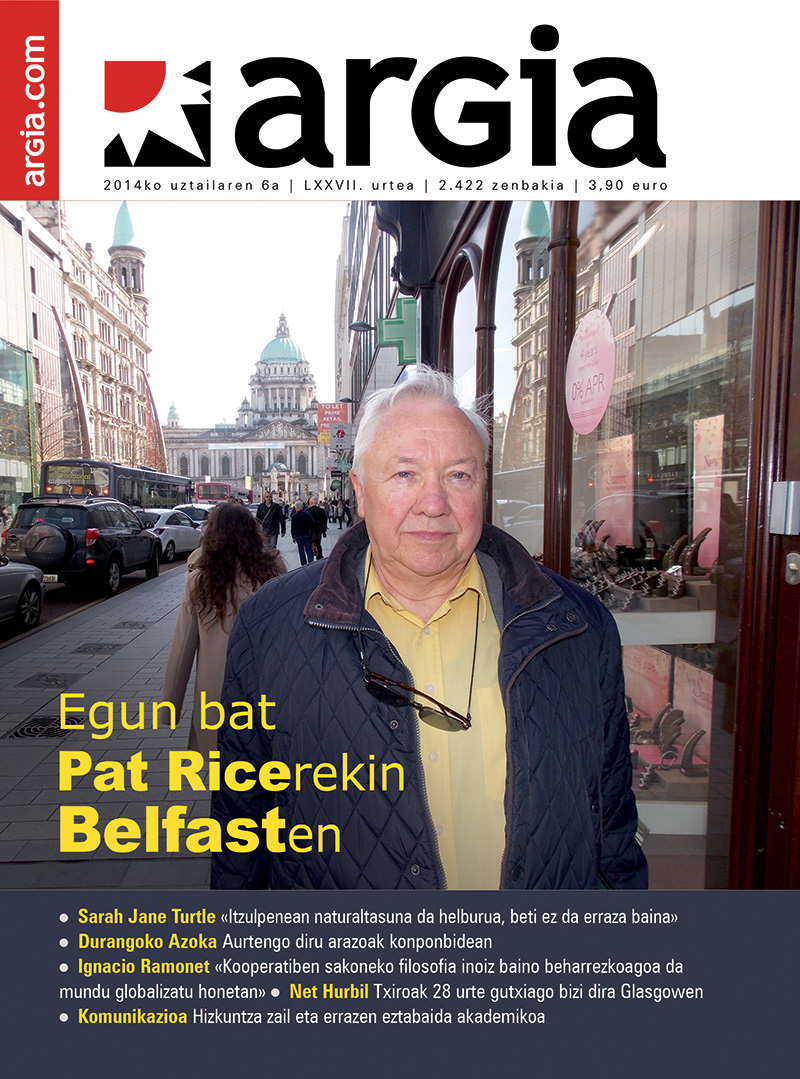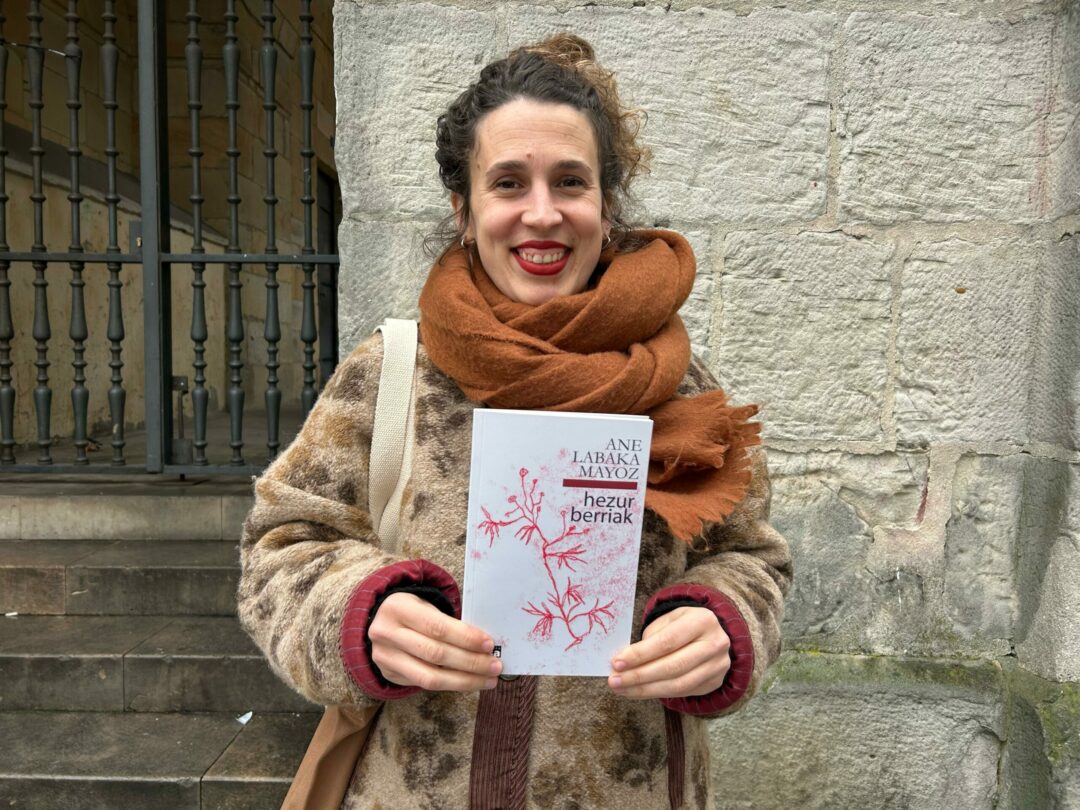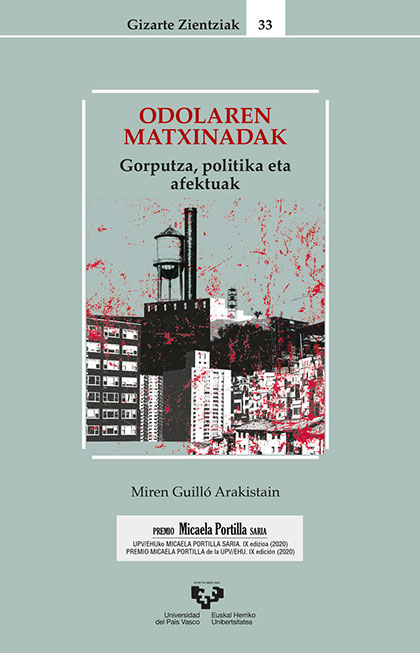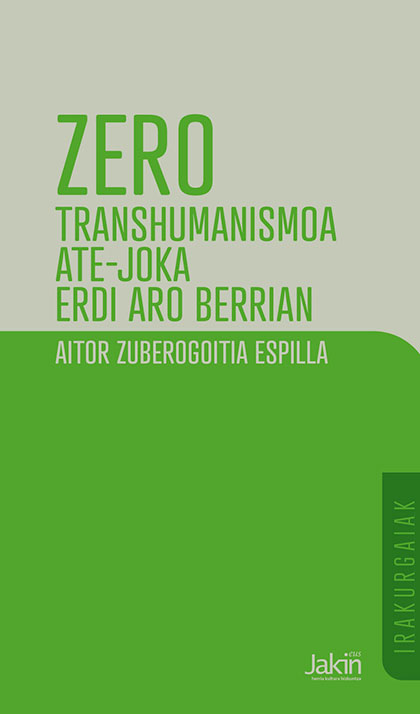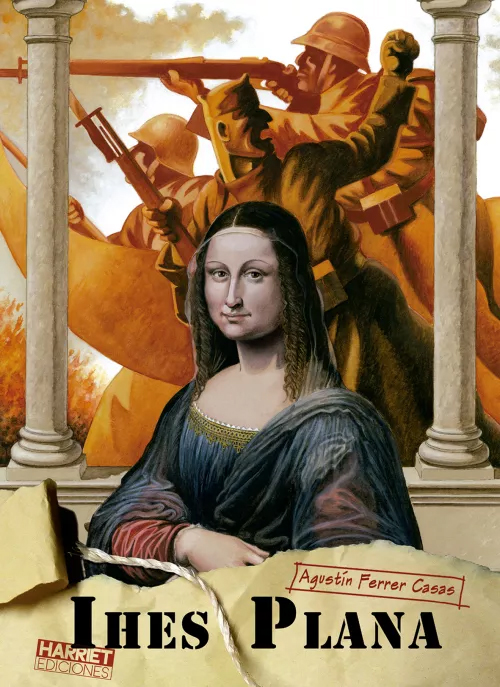"Galicia is still not out of its historical lethargy"
- The editorial Pasazaite has approached the west with the intention of bringing the books of unknown authors closer to the Basque country. And the most recent issue presented to us is Post-it bizitzak, of the Galician Iolanda Zuñiga (Vigo, 1975). Iñigo Roque Eguzkitza has translated these 46 short narratives, which are equal in raw and rage.
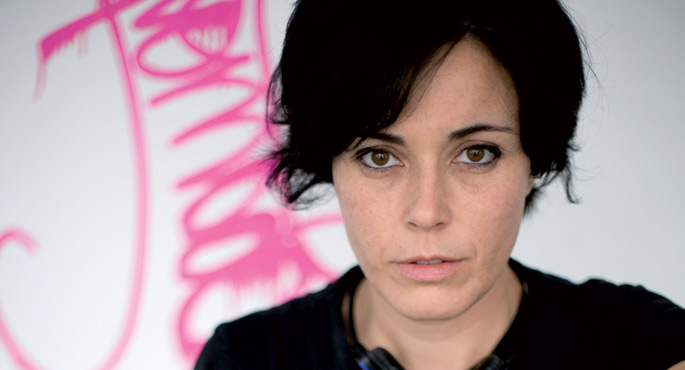
You may not have jumped into the world market, but what does it mean for you to have translated into Basque? Something more than a sympathetic anecdote?
The proposal by Pasazaite editor Xabier Queiruga excited me, especially in an atypical sense. This translation is a symbolic way of returning to “home”, an origin that I do not know but that is present in my mother’s name. I'm going to open the book and I won't be able to decipher it, it's going to be strange, but at the same time close. It is possible to make a space in related cultures, close by their disparity, thanks to committed and obstinate editors who advance with their purpose far from the latest trends in the publishing market. Their work, often not too obvious, is impressive.
In Basque now Post-it bizitzak, but before it has come out in Spanish, in Catalan. It makes the way. What aspirations can a book written in Galician have today?
If this book written in Galician is the first of a trilogy that deals with sex between vampires, it may have great aspirations. Apart from the jokes, there are many books that cross the border of the Bierzo, although on the other side they find more obstacles than a book written in an imperialist language: even if it is exotic, they will go with the label of a galego author that is not always attractive, and they will have to make room at the center of a more protected maremagnum title. But there are Manuel Rivas or Suso de Toro, who come to unravel what has been said so far. The reason? They have written great texts.
Short, varied narratives, but linked by threads that unite them all. The portrait of a generation? Was the visual field of the writer the one that was running over?
That's the intimate portrait of what encompassed my visual field. The book is ten years old. In 2004, and for a few months, I left on it the constancy of my exact latitude length. I was trying to reflect the personal, the local, the perishable. As a daughter of a certain age, I wanted to understand the delirium that has touched me. I admire the desire to endure for a long time with timeless texts, but in my work there is no ambition of that size (this embustery can have from self-consumption, as a member of the group that will not get literary glory). In any case, the essence of the person I was persistent despite the superficial circumstances that compel you to take a position in the different trenches. It is impossible for me to strive to portray myself for generations.
It's a prose of these narratives, like the time, of high speed, frenetic, of voice out loud, in a competition of who knows what slam.
My way of feeling has always been frantic. And this feature was reflected in these minimal stories. Stories with no origins or concrete goals, no connection to each other, like the remains of an explosion, that allowed me to record my traumas. And thank you for the flower, but the slam is an equation that is liberated with talent and dexterity. These are tournaments that I think are serious, infected by audacity, and turn us back to orality. Here's an autochthonous slam. “Regueifa”.
46 short narratives. Could it have been 46 novels? 46 short films? They only teach the tip.
Any catchment can go unnoticed, or it can launch a battle that ends a civilization. Beyond the vanity, it is enough for a first observer to receive it and to teach it afterwards. I just wrote down what would enter a post-it, but behind those brief, urgent warnings that can serve as a basis, maybe buildings can be built. Because a small event can preserve a strong snake.
You went from these post-it to the periphery. 500 pages.
Short stories: impatient, without shame, agile (in form, not in the background); they do not demand anything, they are willing to everything. When you've been satisfied, bored or blocked, you jump to another. On the contrary, the novel is a hard to content lover that requires constant attention. From the very beginning, prison. Conscious and inevitable closure is so obsessive. The Periphery made me live two years in another dimension. It is the best thing that has happened to me and will happen to me in the literature; not only because it is too much understood, but also because it is eccentric.
Not only in gender, you also jumped to Brazil. Or, for a Galician, isn't it such a big leap to locate the novel in Brazil? What relationship do you have with the Lusophone territories?
As for language, it's like being in an allied territory. As for everything else, Brazil does not know us, it does not interest us, it does not need us. And I have the impression that Portugal has always been treated as a slave of the peninsula, which prevents the establishment of a natural feed-back. The Lusophonia is a utopia in which Galicia has no place, although we strive to schedule symposia on the subject. Or that is what this neighbour of Vigo believes, who lives 30 kilometres from the border.
There was a time when the Basques were looking towards Galicia and, look, we went back to Castelao, Cunqueiro, Novoney. Now it seems that we have Tortikolia, eastward. Are we losing something?
The same thing we're losing from Euskal Herria. How is this disconnection possible? Perhaps the pseudocious geography has become enshrined in DNA, among which is the Cantabrian Cordillera, and this may be the reason, in the midst of this global age 2.0, not to serve the neighbors. Galicia, on the one hand, still does not leave its historical lethargy; and, on the other, follows the general law: it consumes a mass culture, obsessed with the domestic, the gastronomic holidays and the tourism of pilgrimage. We don't even know Tortikolia.
Now we only get Manuel Rivas, a little less Suso de Toro, just Miguel Anxo Murado. And all after the scale in Madrid.
And here comes Bernardo Atxaga, Unai Elorriaga, Kirmen Uribe. Eight Basque surnames. The arrival of all this painstaking of the Plateau gives us the true rank of this State. Although Mercamadrid tells us what we have to consume, the responsibility of ordering products from other sources is ours. We have to become active subjects, because they are not the center and not everyone else is the periphery.
If I had to make a diagnosis of the written literature in Galician, where would I start? What are the main hangovers?
An armed woman stands out in poetry. Men excel in the narrative, which, to a large extent, is healing from journalism. We are the flagships in children's and youth literature. The National Art Awards are playwright, comic book, essay. After this praise for talent comes the disappointment: we don't have readers to maintain our literary system. For two reasons: one, we live in an age when audiovisual content predominates, which are easier to digest; and two, the lack of interest of parents and teachers is evident. I've met the teachers who read the back cover of a book, and then evaluate the reading of the entire book to the students. And society is built in education.
Outside the literature there are also interesting projects such as Praza Pública, Luzes, Galiza Ano Cero.
Projects with no stakes, both in terms of content and presentation, where there are some of the clearest brains in this country. Great professionals who, instead of working with the culture of improving the country, thought about how to empty the European Central Bank, would succeed. The problem is they look like honest people.
You won the Xerais with the Periphery. In an interview he said that the time you won with the prize was the first thing you won. Writing time. Does it?
That was my first goal. And the penultimate, I hope. I spent some of my money on travel. Then I came back with a fresh story to the PC screen, but I abandoned it. It happens that life is not what you think you do, but what comes out. And other battles that had to be fought, parallel to the battles that had to be written. Today, my job is to keep myself financially and, ever since I remember, emotionally. I write every five years, to the point of getting obsessed with a story, when I manage to disconnect from the outside.
I don't know if we're in children's time, but I want to bring you to O Divina Ferrete, which should be the first porn film shot in Galician.
It was the idea of another privileged brain. Alejandro Tobar, editor of the editorial Hugin and Munin. The idea was to standardize language in all fields, and for that he thought it would be appropriate to take it to fields where it was a virgin, such as pornography. He broke the Divine Sainete of Curros Enriquez and convinced many people to embark. Unfortunately, I wasn't given the role of porn actor, and I just wrote a few sentences. Even though the biggest guy in the project didn't come to port, we took a few beers and laughed together. What is literature, if it's not meeting people in the same environment and taking some gin-tonic together?
Under the asphalt, the flower
Text: Monica Rodriguez
Illustrations: Rocío Araya translation
of: Itziar Ulcerati
A fin de cuentos, 2025
Ereserkiek, kanta-modalitate zehatz, eder eta arriskutsu horiek, komunitate bati zuzentzea izan ohi dute helburu. “Ene aberri eta sasoiko lagunok”, hasten da Sarrionandiaren poema ezaguna. Ereserki bat da, jakina: horra nori zuzentzen zaion tonu solemnean, handitxo... [+]
Perhaps we could say that this text is the result of an appraisal meeting. However, valuation meetings often leave a dry and bittersweet taste in the mouth. It's a sunny Tuesday afternoon. 16:53. We've connected to the valuation meeting, and we've decided to put a lemon candy in... [+]
Odolaren matxinadak. Gorputza, politika eta afektuak
Miren Guilló
EHU, 2024
Miren Guilló antropologoaren saiakera berria argitaratu du EHUk. Odolaren matxinada da izenburu... [+]
Astelehen honetan hasita, astebetez, Jon Miranderen obra izango dute aztergai: besteren artean, Mirande nor zen argitzeaz eta errepasatzeaz gain, bere figurarekin zer egin hausnartuko dute, polemikoak baitira bere hainbat adierazpen eta testu.
Zero. Transhumanismoa ate-joka erdi aro berrian
Aitor Zuberogoitia
Jakin, 2024
-----------------------------------------------------------
Hasieran saiakera filosofiko-soziologikoa espero nuen, baina ez da hori liburu honetan aurkitu dudan bakarra. Izan ere, biografia... [+]
Adolfo Bioy Casares (1914-1999) idazle argentinarrak 1940an idatzitako La invención de Morel (Morelen asmakizuna) eleberria mugarritzat jotzen da gaztelaniaz idatzitako literatura fantastikoaren esparruan. Nobela motza bezain sakona da, aparta bere bakantasunean, batez... [+]
Anton Txekhov, Raymond Carver eta Alice Munroren ipuingintzari buruzko mahai-ingurua egin dute Iker Sancho, Harkaitz Cano eta Isabel Etxeberria idazle eta itzultzaileek, Ignacio Aldecoa zenaren ipuin literarioaren jaialdian, Gasteizen. Beñat Sarasolak gidatuta, autore... [+]
Ihes plana
Agustín Ferrer Casas
Itzulpena: Miel A. Elustondo
Harriet, 2024
---------------------------------------------------------
1936ko azaroaren 16an Kondor legioko hegazkinek Madrilgo zenbait museori egin zieten eraso. Eta horixe bera da liburu honetara... [+]









